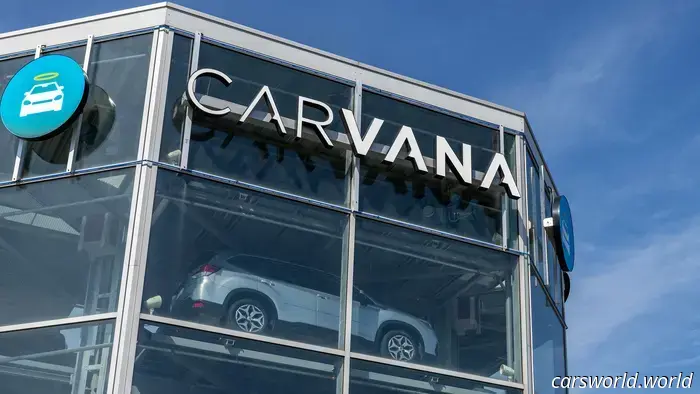
Carvana is gradually transforming into a Chrysler-Dodge-Jeep-Ram dealership for some unknown reason.
Brandon Bell/Getty Images
The latest news and reviews in the automotive world, no nonsense
Subscribe to our free daily newsletter for essential stories delivered to you every weekday.
Remember Carvana? It's hard to forget the online used-car "dealer" that saw rapid growth during the COVID pandemic, which contributed to a significant surge in used car prices, only to face a downfall due to its excessive paperwork and inflated inventory. Perhaps you also recall its plummeting valuation, legal issues, or the puzzling rebound categorized by one investment group as "a grift for the ages." Yes, that's the Carvana we're talking about.
If you’ve followed the journey of this ambitious newcomer, you might be aware that earlier this year, Carvana ventured into new car sales by acquiring a Chrysler-Dodge-Jeep-Ram dealership in Arizona. This week, Automotive News reported that the company has now secured a second CDJR (plus F for Fiat) franchise, located in Texas.
Both dealerships were acquired from established chains, and their status as Stellantis dealers seems indicative of the current retail landscape—put simply, they were available.
Following the Arizona franchise acquisition, we contacted Carvana for more details about the deal. A spokesperson described it as “a small test in a single market.” The company reiterated this theme when discussing the Texas acquisition, stating, “We are in the very early days of testing as a franchise dealer—first at a CDJR dealership outside of Phoenix and now at one in Dallas—and we look forward to continuing to learn as we focus on delivering exceptional customer experiences.”
Interestingly, Carvana is entering the new car market just as its main competitor, CarMax, has exited. CarMax previously operated several new vehicle franchises but has since completely withdrawn from that area.
During its peak amid the pandemic, Carvana faced challenges with paperwork delays that led to issues in several U.S. jurisdictions as customer registrations lapsed before title processing was completed. This resulted in the loss of its dealer license in Michigan and a lawsuit settlement in Connecticut over late registrations and payments to sellers.
Given these circumstances, some brick-and-mortar experience might be beneficial for the company. However, it’s likely that Carvana has other, undisclosed reasons for establishing a physical new-car sales presence in multiple locations. With legal obstacles hindering online-only sales, having a physical footprint might serve as a valuable backup should the company encounter additional challenges.
Do you have insights on why Carvana specifically chose franchises in Arizona and Texas? We’d love to hear from you! Reach out to [email protected] or contact the author directly at [email protected].


Other articles
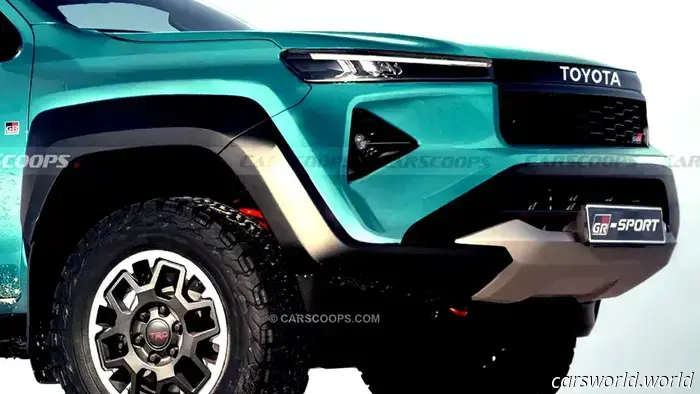 Rumors Suggest Toyota's Next Hilux Will Be Unveiled in November | Carscoops
Local media reports indicate that the completely redesigned 2026 Hilux is set to make its debut at this winter's motor show in Thailand.
Rumors Suggest Toyota's Next Hilux Will Be Unveiled in November | Carscoops
Local media reports indicate that the completely redesigned 2026 Hilux is set to make its debut at this winter's motor show in Thailand.
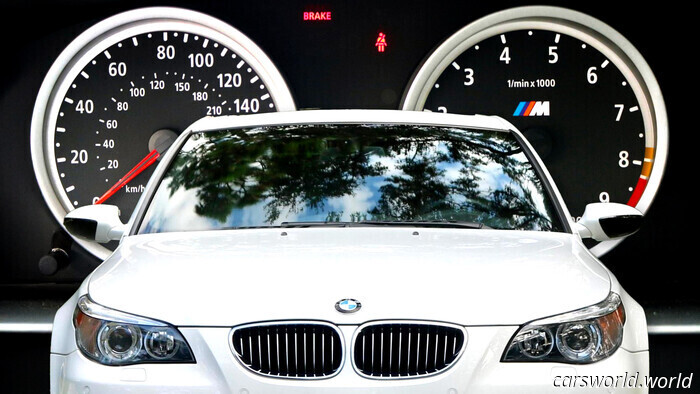 This Is Likely The Lowest Mileage V10 BMW M5 In The U.S. | Carscoops
Those ready to endure the possible problems that might be present in this car could enjoy significant advantages.
This Is Likely The Lowest Mileage V10 BMW M5 In The U.S. | Carscoops
Those ready to endure the possible problems that might be present in this car could enjoy significant advantages.
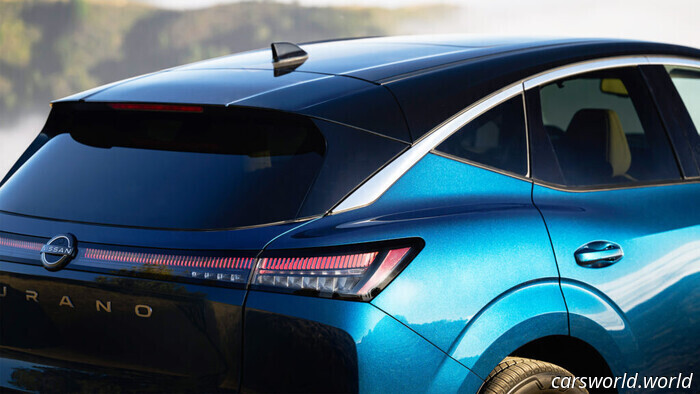 Nissan Discontinues the Least Expensive Murano Variant, But There's Some Positive News | Carscoops
New hands-free driving technology and packages will be introduced for 2026, but the most affordable trim will be discontinued.
Nissan Discontinues the Least Expensive Murano Variant, But There's Some Positive News | Carscoops
New hands-free driving technology and packages will be introduced for 2026, but the most affordable trim will be discontinued.
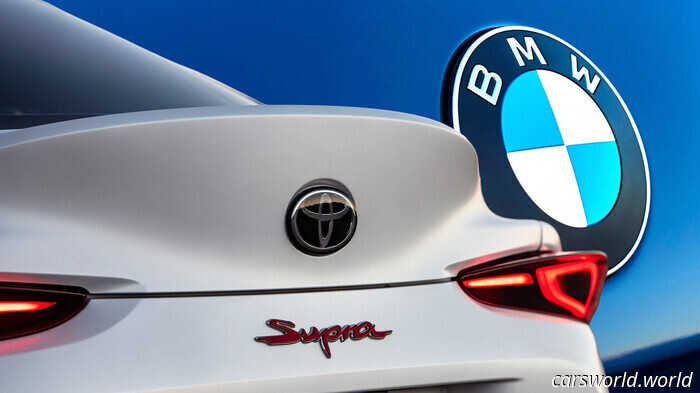 BMW's Recent Recall Poses Problems for Toyota Owners, Particularly Those Who Park in Garages | Carscoops
A defective starter motor relay is associated with a fire hazard in six-cylinder BMWs, as well as in the Toyota Supra 3.0.
BMW's Recent Recall Poses Problems for Toyota Owners, Particularly Those Who Park in Garages | Carscoops
A defective starter motor relay is associated with a fire hazard in six-cylinder BMWs, as well as in the Toyota Supra 3.0.
 You Have the Ability to Construct Your Own Audi RS2 Piece by Piece | Carscoops
Mattel and Hot Wheels introduce customizable Audi RS2 Avant and R8 LMS models for collectors around the globe.
You Have the Ability to Construct Your Own Audi RS2 Piece by Piece | Carscoops
Mattel and Hot Wheels introduce customizable Audi RS2 Avant and R8 LMS models for collectors around the globe.
 Mick Schumacher will be testing an IndyCar at Indianapolis next month.
Although the reason for the test has not been disclosed, introducing a figure like Schumacher into the series could enhance IndyCar's popularity and increase television ratings.
Mick Schumacher will be testing an IndyCar at Indianapolis next month.
Although the reason for the test has not been disclosed, introducing a figure like Schumacher into the series could enhance IndyCar's popularity and increase television ratings.
Carvana is gradually transforming into a Chrysler-Dodge-Jeep-Ram dealership for some unknown reason.
Carvana has recently acquired two physical new-car dealerships: one located in Arizona and the other in Texas.
